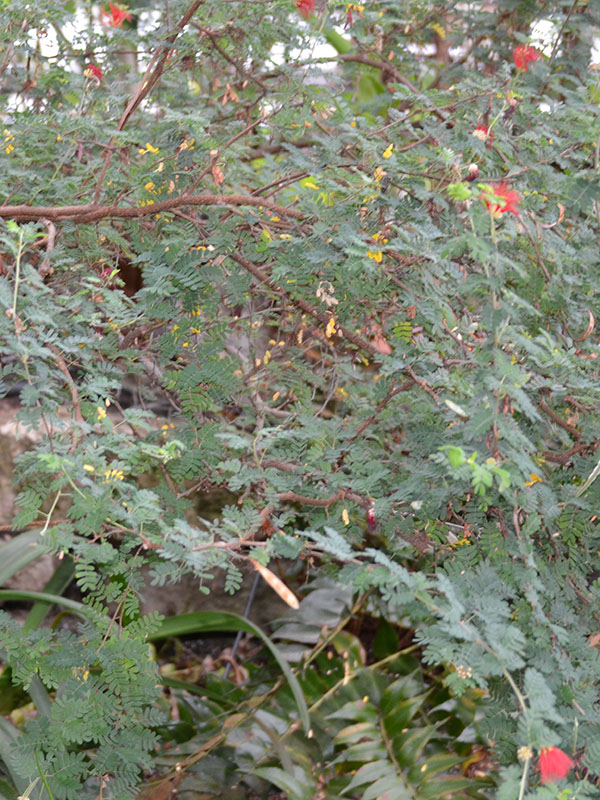| Shape | A many-branched small tree. |
| Landscape | Useful in control of soil erosion, as well as making a beautiful specimen tree. |
| Propagation | Easily propagated by seed placed in boiling water for 12-24 hours, (allowing the water to cool during this period) and then sown before the seeds dry out. The boiling water softens the seed coat and allows quick germination which can vary from one to four weeks. Seed may be sown at any time of year although spring sown seed seems to yield slightly more significant results. Once seedlings have produced their true leaves they may be pricked off into pots and transplanted according to growth rate.
Cutting may also work using half-ripened lateral shoots in mix of equal parts sand and peat/compost and placed in a heated greenhouse under moist shade; cuttings are slow to root.
|
| Cultivation | Grow in full sun in free-draining soil with leafmould or compost, avoiding fertilizers with high levels of phosphorus, with the protection of a south-facing wall at the edge of the hardiness zone. Extremely drought-tolerant, and will also tolerate some lime. |
| Pests | May become infested with caterpillars, especially those of the tortrix moth (Cacoecimorpha pronubana), which can be controlled by hand. Root mealybug (Rhizoecus spp.) may also be a problem, but can be easily controlled by drenching. Mite species, scale, and insects may also attack the tree. The red spider mite (Tetranychus spp.) can be checked either by misting with cool water or through introduction of the predatory mite Phytoseiulus persimilis. |
| Notable Specimens | Royal Botanical Gardens, Burlington, Ontario, Canada. |
| Habitat | Dry sandy soils in pinelands. |
| Bark/Stem Description | Bark is grey, smooth or flaking in scales. |
| Leaf Description | Leaves are green to blue-green, with leaflets to 1 x 0.2 cm, in 10-20 pairs with a large gland between each. |
| Flower Description | Inflorescence to 2 cm in diameter, with up to 50 flowers that are bright orange-yellow, appearing solitary or in groups of 2-3. |
| Fruit Description | Fruit to 8 x 1 cm, rounded, black or dark brown in colour with seeds embedded in pithy material. |
